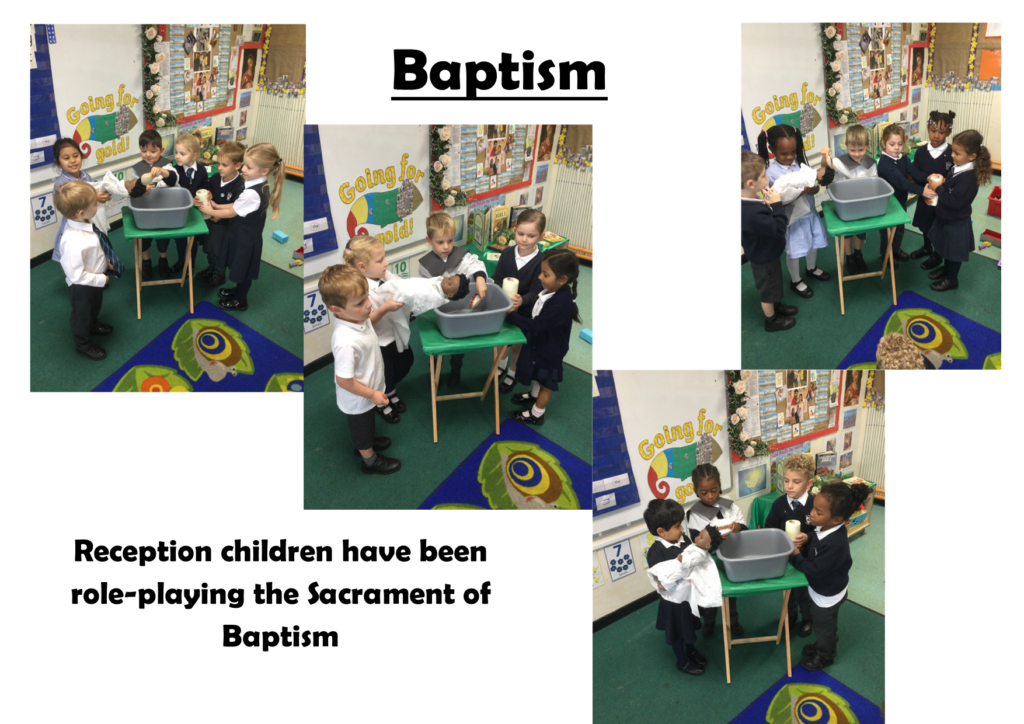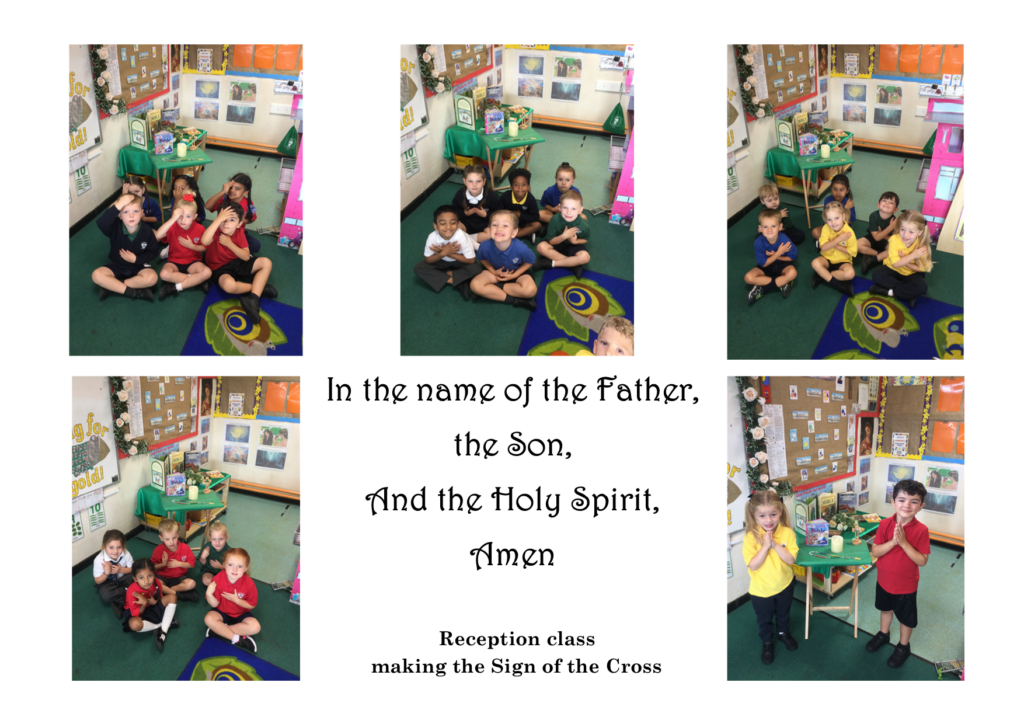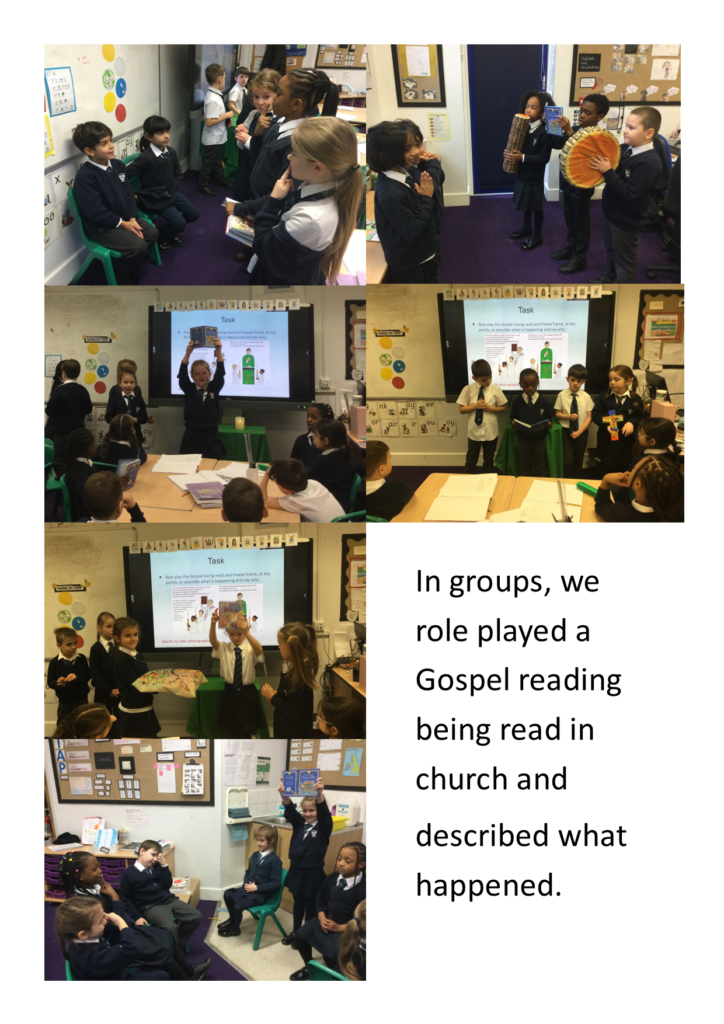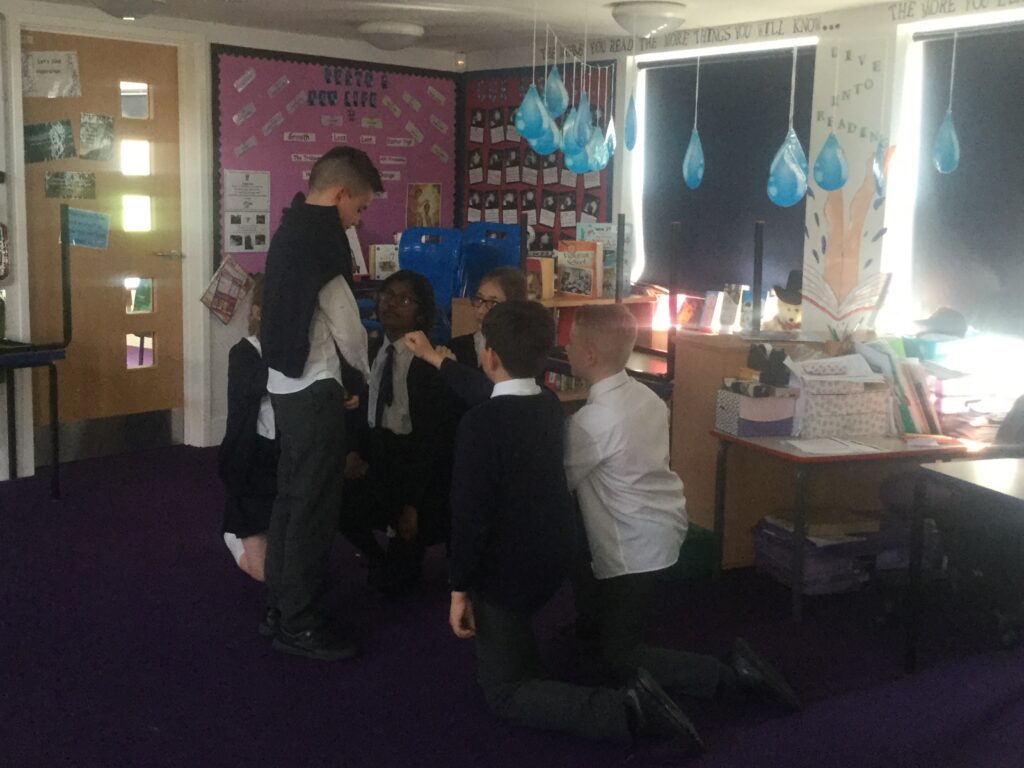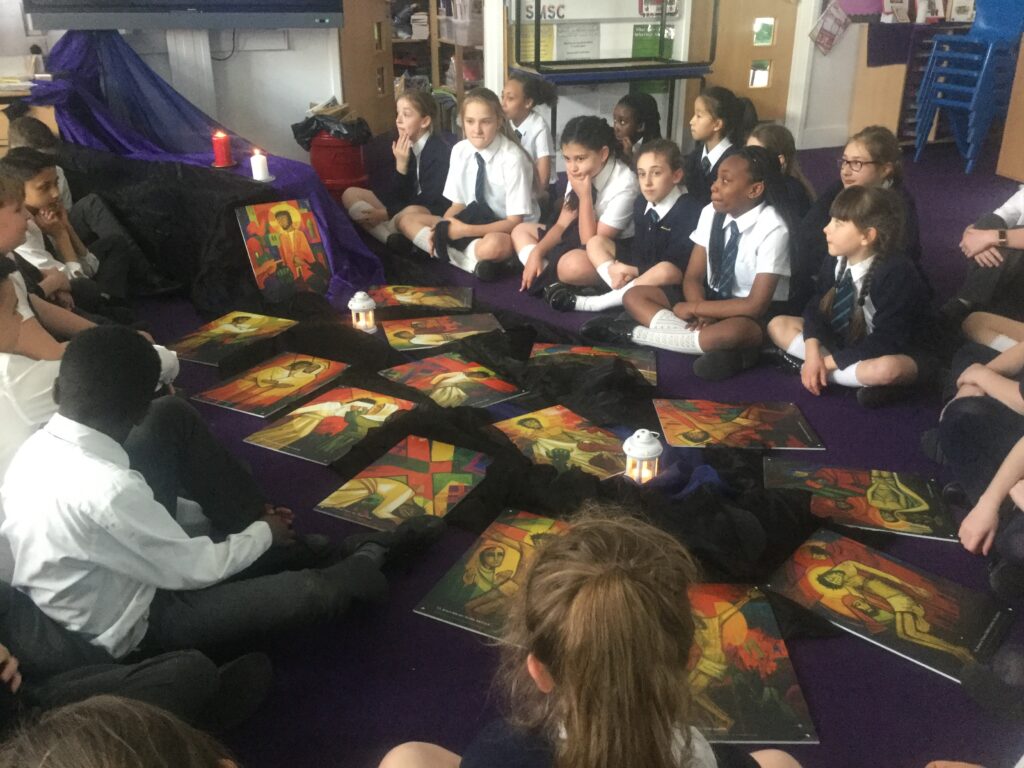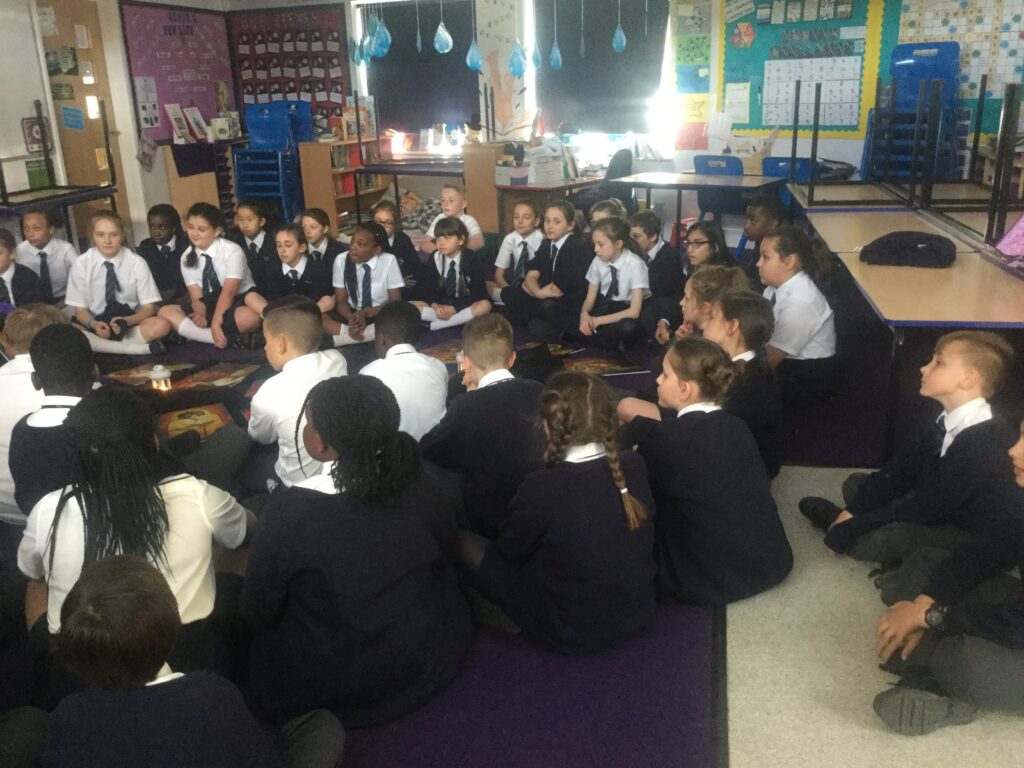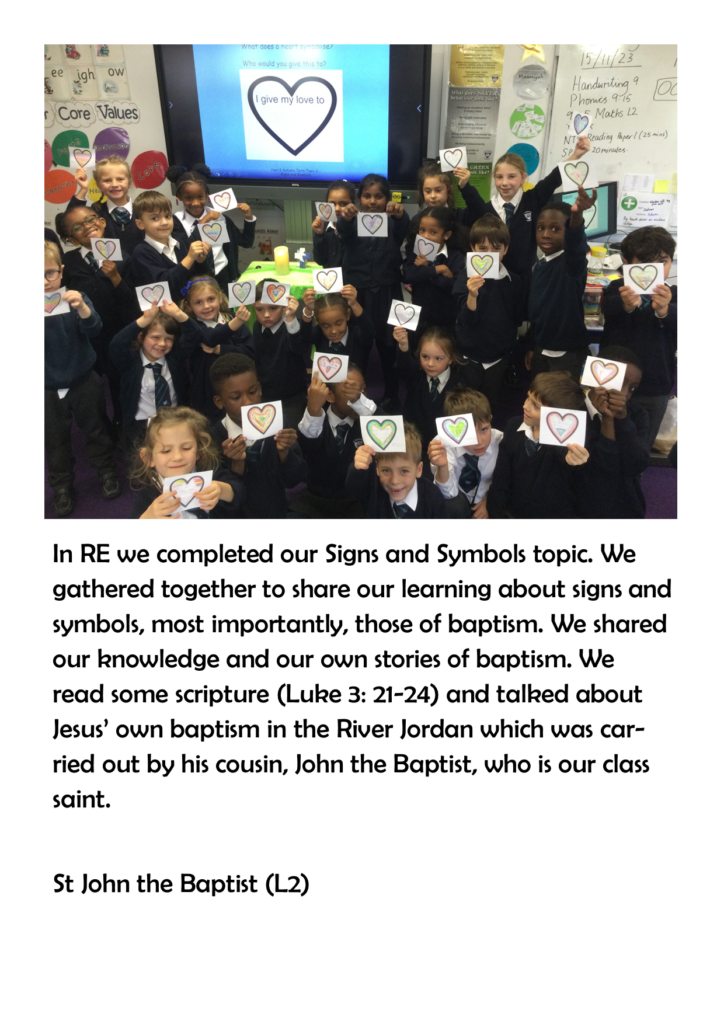Our school week begins with a whole school Gospel Assembly; the focus of the assembly relates to the Sunday Gospel and is led by the Headteacher.
Class chaplains lead the prayer and liturgy sessions in class on a Tuesday and Thursday
On Friday there is a reflection assembly, which refocuses on the message from the Gospel shared on Monday and the responses from the children. We then give thanks for the week and celebrate the children who have used their skills and talents well.
|
Monday |
Whole School Gospel Assembly (Wednesday Word resources) – led by Head Teacher of Deputy |
|
Tuesday |
Class based collective worship, liturgy and prayer – TenTen resources – led by class teacher and pupils |
|
Wednesday |
Whole School Assembly – TenTen assembly led by teachers (rota) |
|
Thursday |
Class based collective worship, liturgy and prayer – TenTen resources – led by class teacher and pupils |
|
Friday |
Whole School Reflection Assembly (revisiting Wednesday Word) followed by Celebration of work (parents attend) |
(guidance taken from Prayer in Primary and Secondary schools 2020)
RE Newsletter – Autumn 23
RE Newsletter – Spring 24
RE Newsletter – Summer 24
Class Assemblies & Events
- Throughout the year there are a number of assemblies that are led by each year group, to which the parents and carers are invited.
- Whole school Masses are celebrated on Holy Days of Obligation and special Feast Days and Celebration. E.g. Start of the Year Mass, Celebration for Year 6 Leavers
- Seasonal celebrations and school events are also held in Church.
- All Year groups attend Mass with the Parish regularly, there is a weekly rota for each Year group; our younger children attend a special liturgy after Mass, led by the Pastoral Lead of the Parish.
Classroom Prayers
- Prayer is woven into the daily life of our school through Collective worship and within our school liturgy assemblies and faith celebrations. Prayer is planned for but can also happen at any point in the school day. There is a strong pupil involvement in the preparation and presentation of prayer.
- Classes have a specific RE / Prayer areas and display as appropriate to the liturgical calendar or RE topics
- All Governing Body meetings and staff meetings begin with a shared prayer.
- There is a table in the hall where children can write and offer prayers; this is alongside the reflective question for children to ponder and respond to
- Children are encouraged to share music and hymns as part of our shared prayer life in school
We have expectations of what Collective worship should look like in class:
Expectations: candle, prayer table, music, scripture in place.
- All children should be sitting in silence / finding their quiet place, calming music on – Class chaplains – to bring items from RE table to prayer table for focus of lesson.
- Lesson begins with the sign of the cross
Left hand on their heart – right hand makes sign of the cross – touch head (God is the father), touch heart (Jesus is the Son), touch your left shoulder then right (The Holy Spirit is all around)
At the beginning and end of RE lessons, there is time for prayer and reflection.
From “To know you more clearly”, this prayer is to be said by the teacher at the beginning of every lesson
Dear Lord,
Please open our eyes, our ears and our hearts to hear your message and take it out into the world.
Amen
The prayer for the end of the lesson can be found in teacher notes of the RE programme “Come and See”, the same prayer and reflection should be said at the end of each lesson (of that topic) and end with a reflection/challenge – how they can take the learning out in to the world – as Stewards of God’s Word.
We take the themes of our assemblies from the Catholic faith, and we observe the festivals and mark the events of the Liturgical year. We follow the “Come and See” Programme for Religious education for Years 1 to 6 and our displays and themes of assembly follow this programme. Our EYFS pupils use the RED, To Know You More Clearly. (September 2023).
Prayer can be seen in many forms and ways:
Praise: the highest form of prayer because there is no self-interest in that, just praising God for being God. That’s what we are called to do in prayer.
Thanksgiving: to be thankful for all we have or are gifted.
Repentance: when we reflect on how we sometimes fall short of the Gospel ideas and ask for forgiveness.
Petition: intercession, for ourselves, for others and for the world.
Three ways of praying:
With the voice – vocal prayer – saying prayers
Of the mind – meditation – meditative prayer
Of the heart – contemplation – contemplative prayer
Click here for all our school prayers:
Our School Prayers
